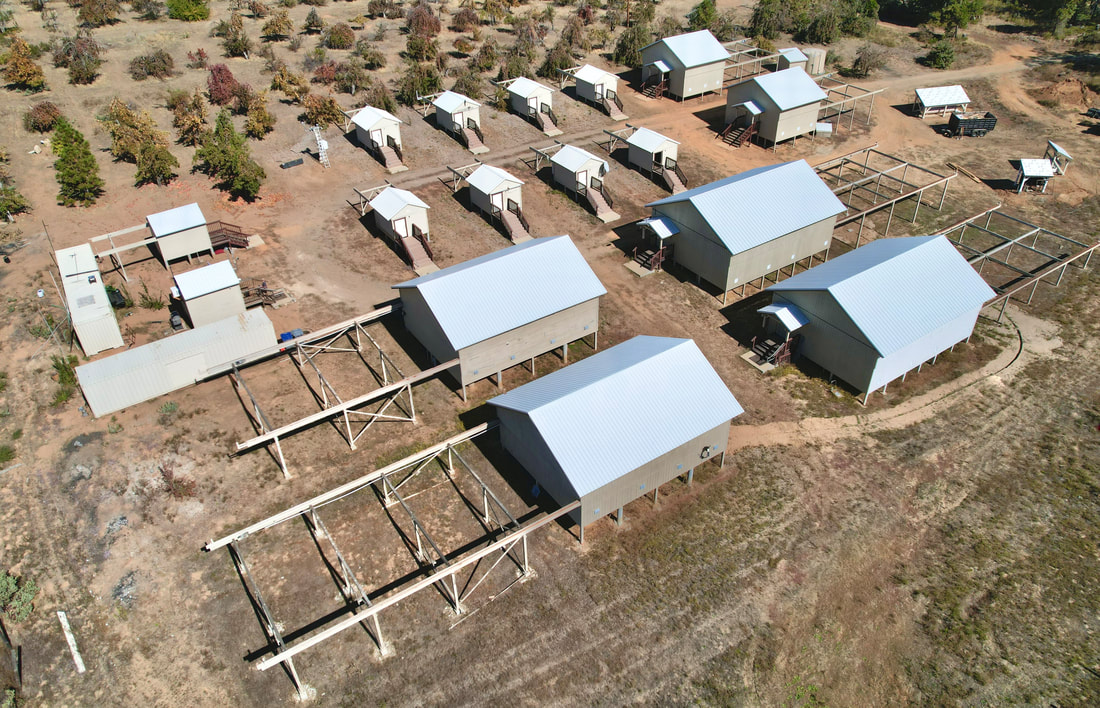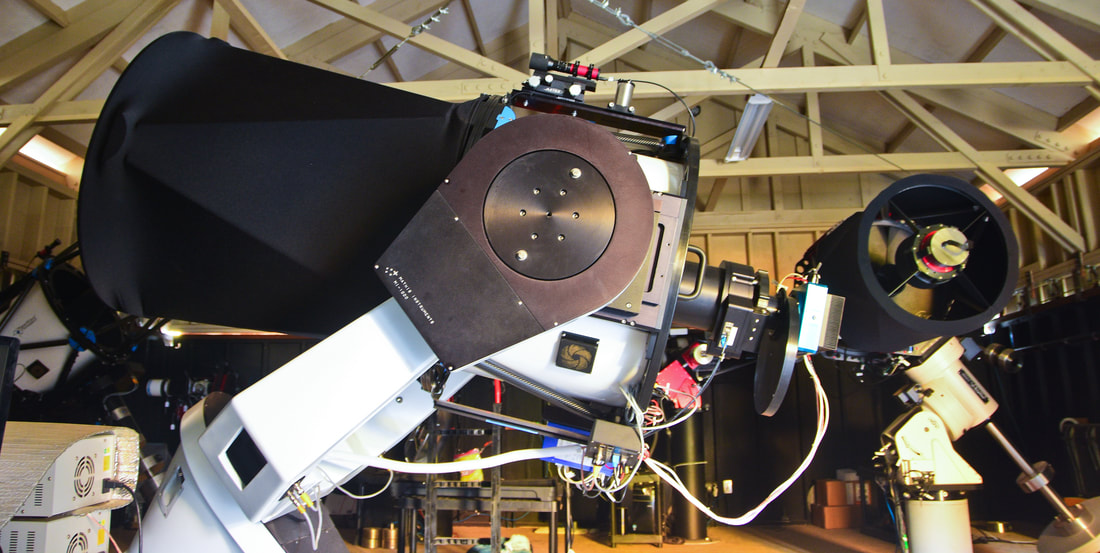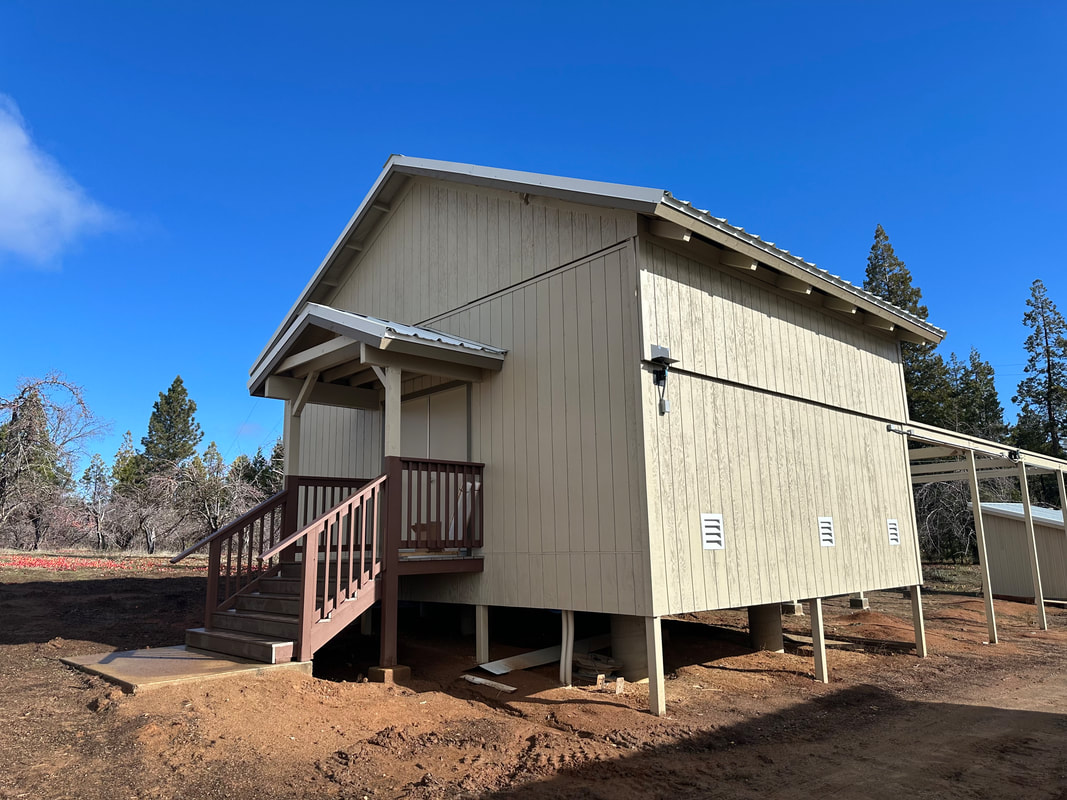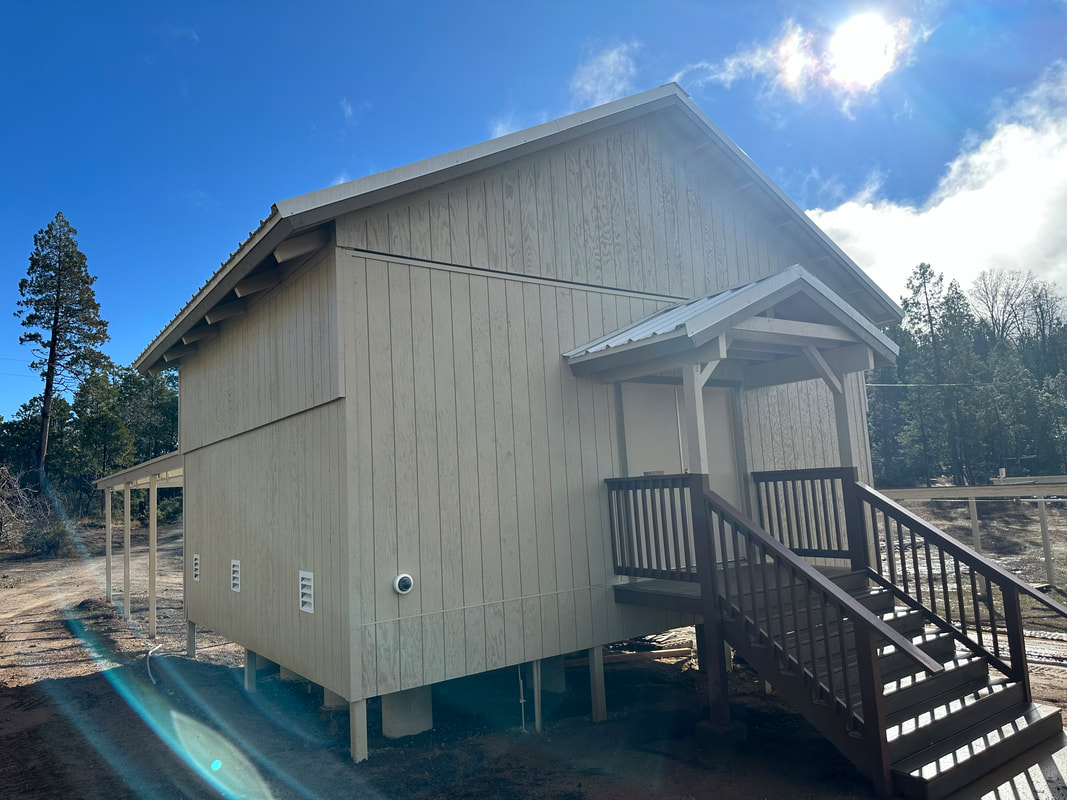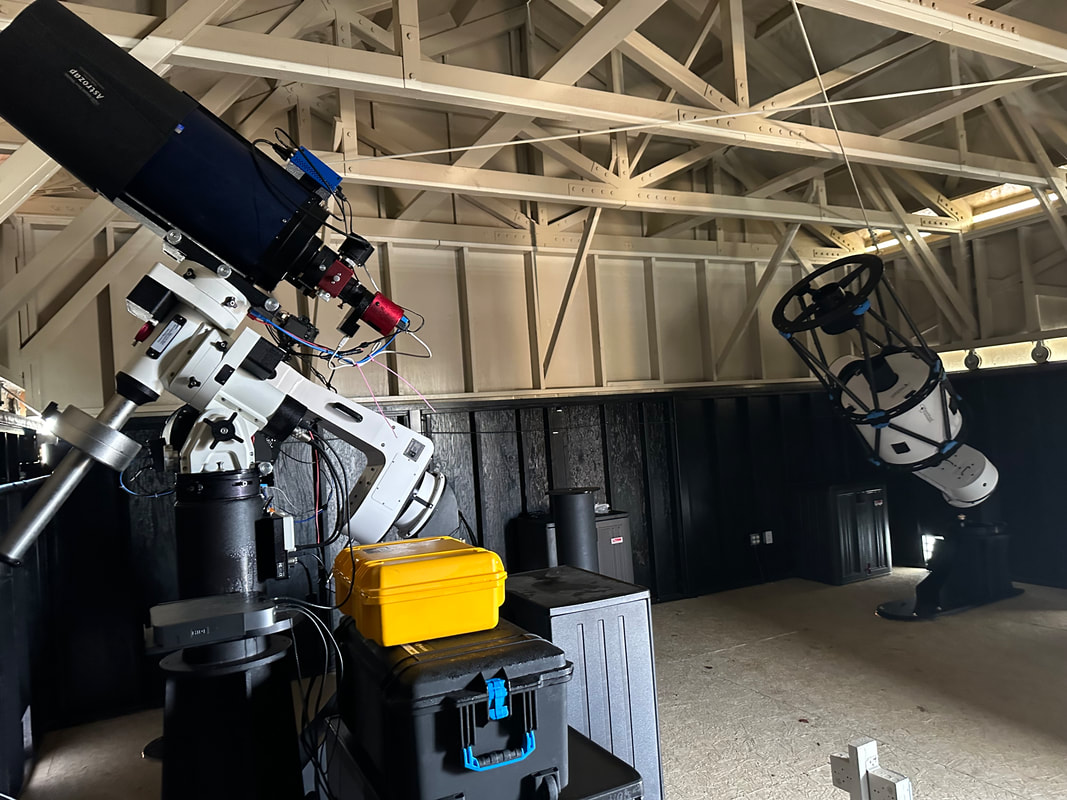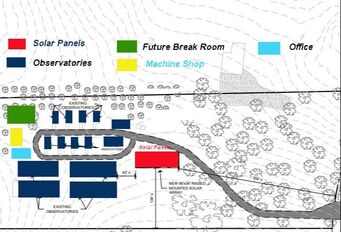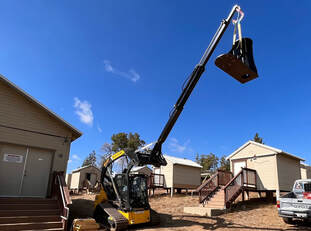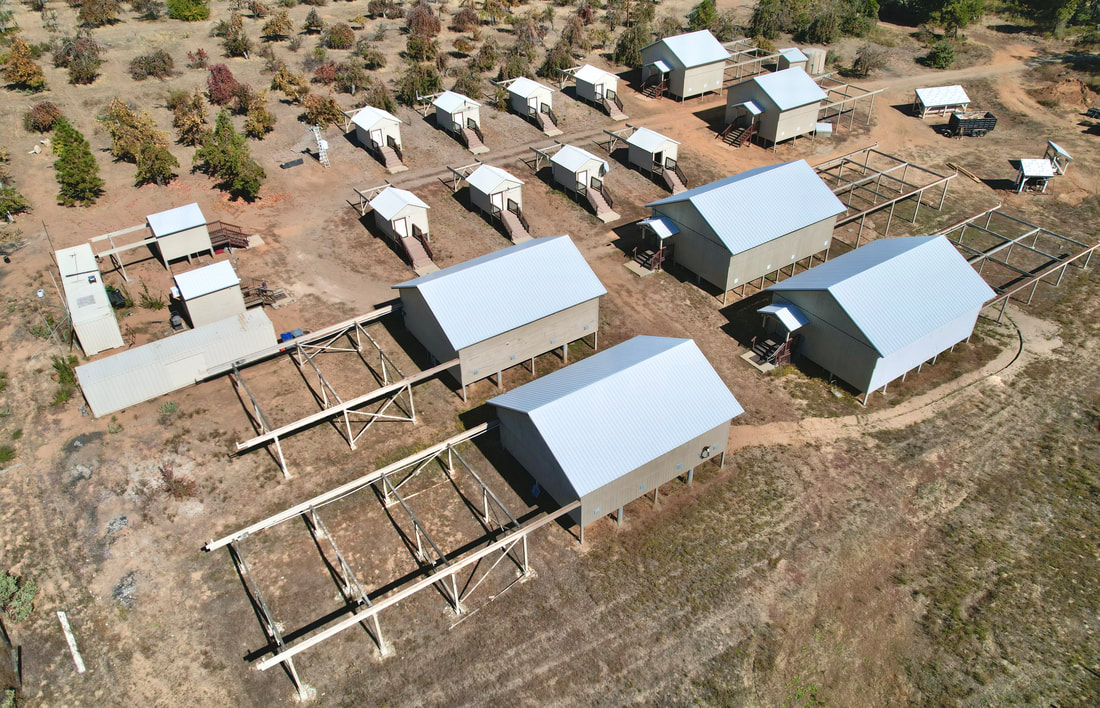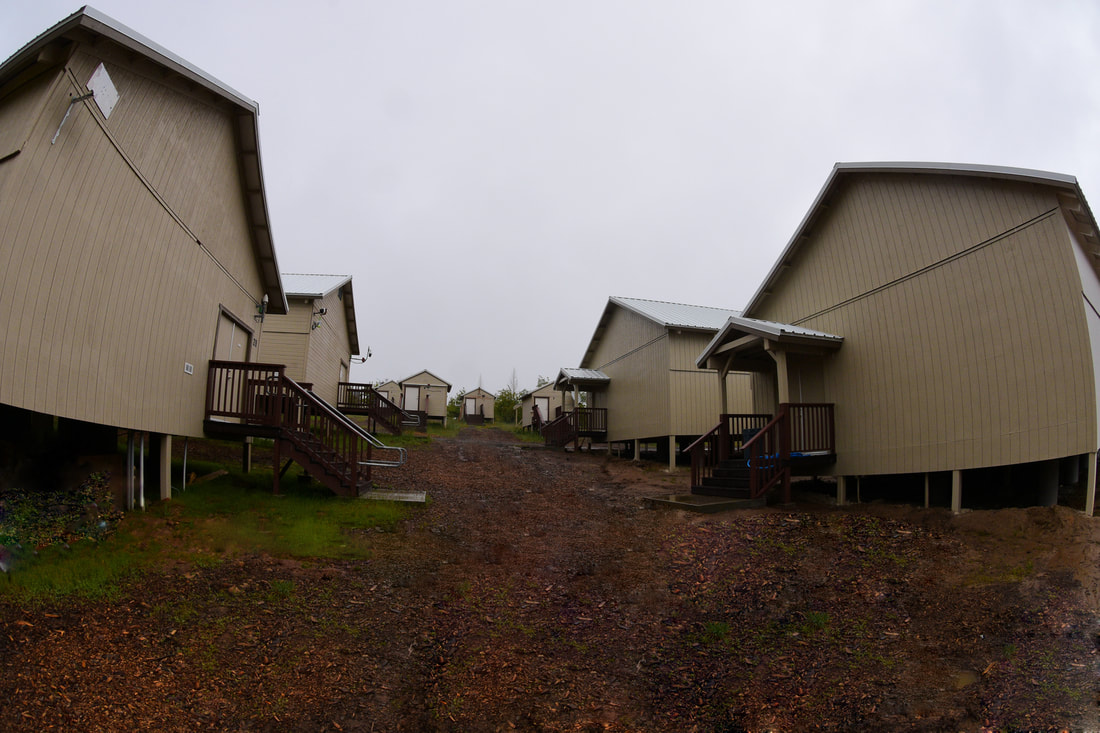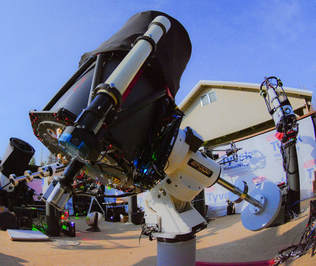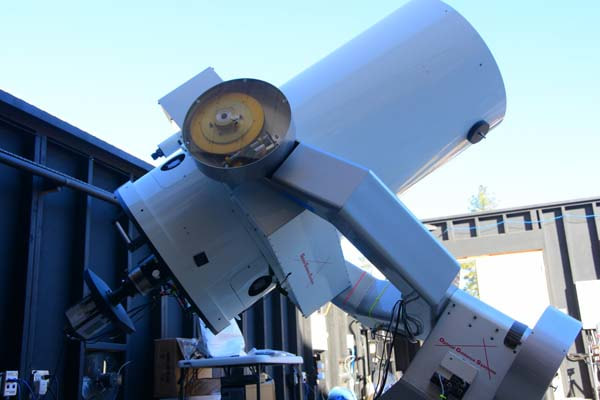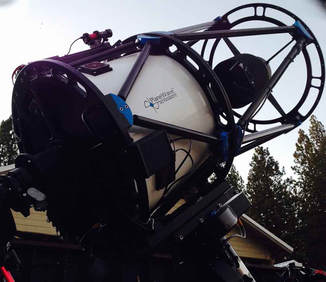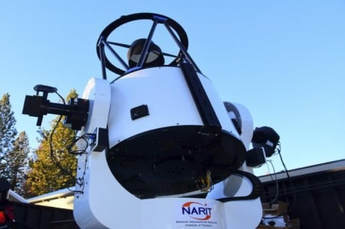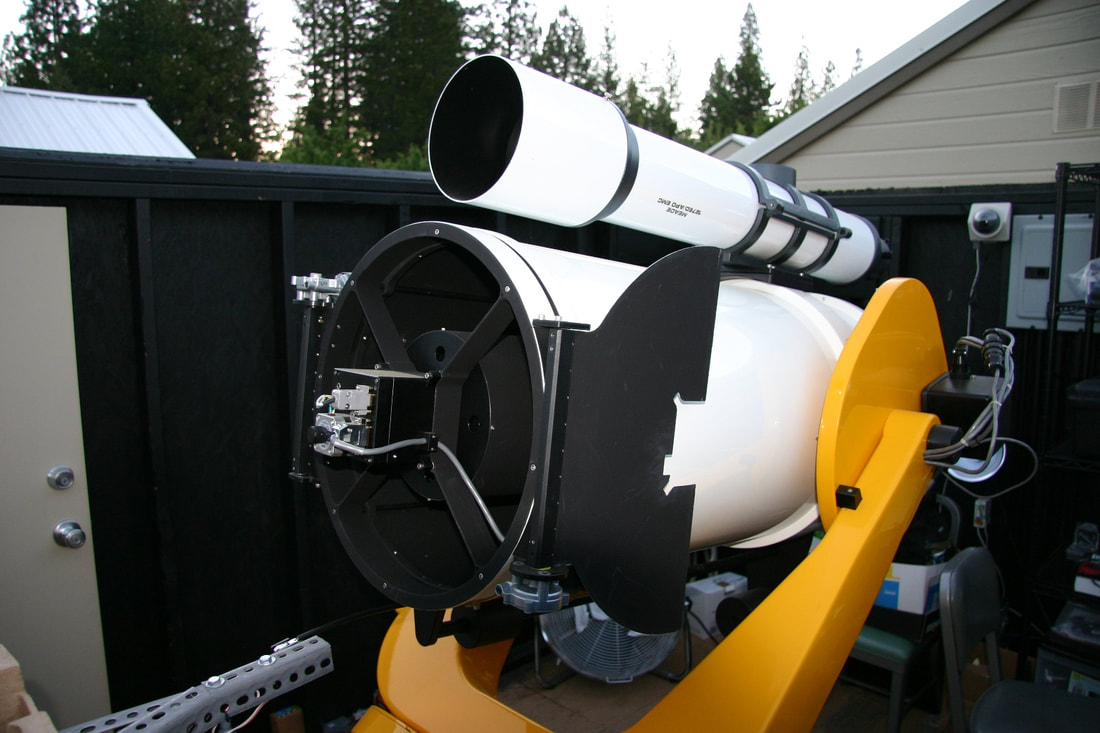Bring Your Telescope to Sierra Remote Observatories: An Ideal Site with Unparalleled Seeing Conditions for Astronomers, Space Industry Professionals and Astrophotographers.
An Introduction to Sierra Remote Observatories
SRO is a group of remote observatories located in the Sierra Nevada Mountains and dedicated to remote and robotic data acquisition, imaging, satellite tracking and communications. We have been operational continuously since 2007, with more than 125 telescopes currently on-site. We are uniquely located in the Sierra Nevada Mountains in an area with excellent imaging conditions including:
• 1 arcsecond average summer seeing
• sub-arcsecond peak seeing (following astronomical twilight)
• dark skies > 21.78 mag/square arcsecond
• a very low incidence of thunderstorms
• no summer monsoons
• average wind speeds of only 1 mph
• an average of 290 clear nights per year.
We have easy access, being only one hour from the Fresno-Yosemite International Airport and 4 hours from Los Angeles or San Francisco, by car. We have robust, secure and fast fiber optic internet with satellite back up, network redundancy and 24/7 security. Our standard internet speed is 1 Gbps (full duplex) with higher gigabit speeds and dedicated fiber available. We have on-site technicians for daily repair and assistance. Roof control is based on on-site live weather telemetry. Clients have access to roof position files so they can optimize their imaging time and also have access to weather/seeing condition files (Boltwood files) which can be embedded into their fits files. Our systems are redundant, including dual secure firewalls, an industrial grade Generac all-site generator and fiber optic internet backup with Starlink. Our clients include astrophysicists, space industry professionals, astronomical institutes and advanced amateur imagers. Contact us if you have any questions or if you are looking for a unique site to place your telescope. Our website is www.sierra-remote.com and our email address is [email protected].
Keith Quattrocchi
President and Founder
Sierra Remote Observatories
Read More
• 1 arcsecond average summer seeing
• sub-arcsecond peak seeing (following astronomical twilight)
• dark skies > 21.78 mag/square arcsecond
• a very low incidence of thunderstorms
• no summer monsoons
• average wind speeds of only 1 mph
• an average of 290 clear nights per year.
We have easy access, being only one hour from the Fresno-Yosemite International Airport and 4 hours from Los Angeles or San Francisco, by car. We have robust, secure and fast fiber optic internet with satellite back up, network redundancy and 24/7 security. Our standard internet speed is 1 Gbps (full duplex) with higher gigabit speeds and dedicated fiber available. We have on-site technicians for daily repair and assistance. Roof control is based on on-site live weather telemetry. Clients have access to roof position files so they can optimize their imaging time and also have access to weather/seeing condition files (Boltwood files) which can be embedded into their fits files. Our systems are redundant, including dual secure firewalls, an industrial grade Generac all-site generator and fiber optic internet backup with Starlink. Our clients include astrophysicists, space industry professionals, astronomical institutes and advanced amateur imagers. Contact us if you have any questions or if you are looking for a unique site to place your telescope. Our website is www.sierra-remote.com and our email address is [email protected].
Keith Quattrocchi
President and Founder
Sierra Remote Observatories
Read More
Construction of our new midsized multi-telescope buildings completed and operational with several telescopes installed (designated Buildings 13 and 14). Each new midsized observatory will house 8 - 12 telescopes of various size.
What's New at Sierra Remote Observatories
|
New Multi-Telescope Buildings
Sierra Remote Observatories was founded in 2007 and has continued to grow, expand and improve itself. Initially there were just 8 small private observatories, with 6 large multi-telescope buildings added over the past several years. Several months ago, nearly every spot at SRO was taken, with over 125 telescopes currently installed. As a result two additional mid-sized multi-telescope buildings were recently completed and are operational with a few telescopes recently installed. The progress of this construction can be seen at: https://www.sierra-remote.com/new-construction-buildings-13--14.html Other recent updates over the past few years include our fiber optic internet upgrade. We now have standard 1 Gbps full duplex with higher gigabit speeds and dedicated fiber available. We have an on-site industrial grade Generac generator, redundant and secure firewall/VPN access, and Skylink as our satellite internet backup. Our roof control continues to utilize a modified version of the highly reliable and well-designed SkyRoof and SkyAlert. Weather condition and roof position files are available to our clients. |
Solar Power at Sierra Remote Observatories
Last year, we began planning for solar power at SRO. We were concerned about our power usage and began to explore the possibility of taking advantage of our clear skies by producing our electrical power. We also decided to design a system which will provide uninterruptable power under all conditions. This means having battery back-up when PG&E power might fail, without the computers rebooting, making having a small UPS unit next to the telescope (or other equipment) unnecessary. It also means, designing a system which, in the event of a sustained power loss, can then switch over to our generator, again without any power interruption. This system was designed and accepted with construction beginning later this year. We will have 120 solar panels, which will produce 48,000 watts. We will produce more energy than we use, returning extra power to PG&E. We also will have enough power for the potential growth of SRO. This will be backed-up with four 18.5 Killowatt-hr Li-Fe-Phos batteries. In the event of a sustained power outage, the 27 kW generator will take over, without any power disruption. We will post the progress of the solar array on our website, once construction begins. For more information about SRO, visit: www.sierra-remote.com |
Infrastructure Updates
At SRO we are continually improving and updating the infrastructure that allows uninterrupted data collection and imaging. Recently we added a skid steer tractor for all year use, including local snow plowing and crane utilization for larger telescopes and mounts (see image above). Prior improvements include the addition of fiber optic internet with standard 1 Gbps full duplex with higher gigabit speeds and dedicated fiber available. Our fiber is backed up by Starlink. VPN access is performed through our dual (redundant) secure firewall. There is 24/7 surveillance at SRO. The owner lives on-site and SRO has full time technical support with technicians on site every day of the year and available for emergency services 24/7. Most technical problems can be fixed on site. In the event an item needs to be returned for repair, we will ship it out and then reassemble the item. We also supply two hours per month of free support with additional support available, and will, without charge, assist you with your telescope installation and updating your equipment. In effect, if you cannot be present, we can install your telescope for you. Thereafter our staff will be your "eyes, ears and hands" on-site. Our goal is to make your remote data acquisition and imaging experience as trouble free as possible. In addition, we have added a whole site industrial grade Generac generator so that power will be present in the event of a PG&E power failure. A 120 panel solar system, with whole site battery backup and uninterruptible power, will soon be constructed (see prior article to the left). At SRO, we are continuously improving the extent and quality of our infrastructure so that you can focus on trouble free satellite tracking, space communications, data collection and astronomical imaging. Read More |
SRO Updates and Improvements
Recently SRO was at 98% capacity, however 2 additional multi-telescope buildings have been completed (Buildings 13 and 14), allowing us to install an additional 20 telescopes. We have authorization for several additional buildings and dome observatories. At SRO, we have always embarked on new construction as our site becomes close to full, so we can always accommodate new clients.
In addition to the two buildings recently constructed (midsized 20 x 24 foot) multi-telescope buildings, we have 9 private observatories (Buildings 1-8 and 15) and four large custom designed multi-telescope roll-off roof buildings. Of these 4 large multi-telescope buildings, Buildings 9 and 10 are 26 x 36 foot buildings with 9 foot ceilings and Buildings 11 and 12 are 30 x 40 foot with 10 foot ceilings (each building can house 14 telescopes). The large multi-telescope buildings were constructed for larger telescopes, with nearly 10 feet of space between each telescope and 9 to 10 foot ceilings. This allows us to easily handle larger telescopes, such as 28" or 32" telescopes in equatorial or Alt-Az configuration. We are able to put up custom domes or custom roll-off roof observatories for meter class telescopes. All of our buildings are built off the ground (for "below the floor" airflow) with wooden floors (no concrete slabs), in order to allow for more rapid thermal equilibrium.
SRO has its new Headquarters in a property adjacent to SRO. The owner lives there and our on-site technicians also live nearly in Auberry. This greatly simplifies our ability to provide support at any time, 365 days each year.
In addition to these new and established buildings, we continue to update our infrastructure. Currently we have fast fiber optic internet with standard 1 Gbps full duplex and the option of dedicated fiber at higher gigabit speeds. We have an improved and standardized roof control system, emergency satellite internet backup (now using Skylink) and 24/7 security. We have two full time technicians on site 7 days a week, with emergency help available 24 hours a day. Our firewall is secure and redundant with a dedicated failover backup. We have an on-site Generac Generator with a thousand gallon propane tank, which can supply power for weeks in the unlikely event of a sustained power outage. As the article on our approved solar power system details (see the article above), we will soon construct a 120 panel solar array with integrated battery and generator backup, providing uninterruptible power to SRO. With the powerful array (capable of producing 48,000 watts) and integrated battery backup (four 18.5 Killowatt-hr Li-Fe-Phos batteries), all of our power will come from clean energy and we will be able to contribute power back to the power grid. We recently added a powerful skid steer tractor (New Holland 345), which can be used as a snow plow, forklift or crane for installing larger telescopes and mounts. SRO will no longer depend on others for these delicate and important activities.
Our goal at SRO has always been to build a site which is as trouble free and seamless as possible, so our clients can focus on unencumbered satellite tracking, space communications, data acquisition and astronomical imaging. We continue to strive to be the premiere site for astronomical data collection and imaging for astronomers, space industry professionals and astrophotographers.
Keith Quattrocchi
President and Founder
Sierra Remote Observatories
Above: SRO with two additional multi-telescope observatories (two large observatories in right background). All buildings are fully operational, with over 125 telescopes in use. The site has been continuously operational since first light in 2007.
Contact Information and Images from SRO
|
Fisheye view of SRO with the 4 larger multi-telescope buildings in the foreground and some of the 8 smaller private observatories in the background.
The Astronomical Telescope of the University of Stuttgart (ATUS) was established by the University's Institute of Space Systems with support of the Stratospheric Observatory for Infrared Astronomy (SOFIA) and funded by the DLR Space Administration.
The Korean Astronomy and Space Sciences Institute (KASSI's) 24" OGS. They are conducting polarimetry of the moon's surface.
|
The SRO newsletter is sent out semiannually. Our goal is to keep clients and interested professionals aware of changes, updates and projects at SRO. Feel free to contact us by phone or email at any time and with any questions you may have. Our phone numbers and email are listed below : Contact Information: Corporate Address Sierra Remote Observatories 42120 Bald Mountain Road Auberry, CA 93602 Corporate: 559-855-2473 Cell: 530-401-0643 (PST) [email protected] Observatory Location: Auberry, California General Inquiries: [email protected] President & Founder Keith Quattrocchi [email protected] 530-401-0643 (PST) Technical Support: Evan Cornelson [email protected] & Sam Miller [email protected] Website: www.sierra-remote.com |
The iTelescope.Net's 24" Planewave CDK.
The National Astronomical Research Institute of Thailand's (NARIT's) 0.7 meter Planewave telescope (CDK 700).
Dr. Fred Ringwald's 16" DFM Ritchey-Chretien Telescope. Dr. Ringwald, an astrophysicist at Fresno State University, has published several peer reviewed articles on cataclysmic variables with data from SRO. These papers have been cited in refereed scientific journals 123 times as of January of 2023.
|
SRO® and Sierra Remote Observatories® are Registered in the U.S. Patent and Trademark Office
Banner images by Keith Quattrocchi, Eric Coles and Mel Helm
Banner images by Keith Quattrocchi, Eric Coles and Mel Helm

